CRISIS , WHAT CRISIS ? (XIII): Ry Cooder’s ‘No Banker Left Behind’
Kasia Anderson: This is Kasia Anderson, associate editor at Truthdig. I’m here with Robert Scheer, our editor in chief, and also the musician Ry Cooder, who has written a song based on one of Bob Scheer’s recent columns, called “No Banker Left Behind.”
And before we get into our discussion, let’s play that track.
That was “No Banker Left Behind.” And as I understand it, Ry, there’s a bit of an origin story behind this track. Can you tell us about it?
Ry Cooder: Yeah, sure. We at the house, we read Truthdig pretty regularly. And I like to get up in the morning and find it there on the computer and open it up and see what’s what. And I saw this heading—this was during the bank ... the whole business with the bailout. And, “No Banker Left Behind”—I said, that’s the voice of Uncle Dave Macon speaking to me. Uncle Dave, who was the very … at one time very well-known medicine show country musician—you’d have called him a banjo player—just the greatest, par excellence. And he had a great gift for making simple statements about life and about society. And this was also during the Depression; he was very popular at that time, made hundreds of records. And so he would take a thing like this and reduce it down to one little statement, and you heard this and you understood it completely, and by the end of the song you’d learned something. He was very entertaining; he’d dance while he played the banjo, and lived to be a very old man. So I thought, “No Banker Left Behind,” by Uncle Dave Macon … who … no banker left behind, what? The train. OK, they’re on the train, the train’s leaving. Why? Because it’s a rich train for only bankers. They’ve got all the money, they get on the train, the train pulls out, and the rest of us all stand there watching and saying, where’d it all go? You know, how did they make off with all this loot? And then it was a matter of telling a little story of going to the White House, what they’re going to eat when they get on the train, and with Uncle Dave in mind. So it was a pretty simple little thing to do, to get the record started. ...
Eine schöne Geschichte: Ein großer Musiker inspired by the current economy and the protest songs of the past...
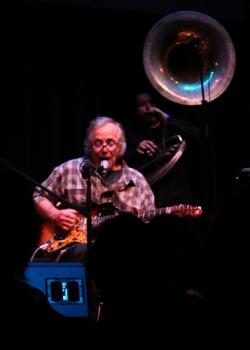 Ry Cooder on the protest songs of today
Ry Cooder on the protest songs of today
Marketplace, Monday, August 29, 2011
Kai Ryssdal: Guitarist Ry Cooder has collaborated with everybody from the Rolling Stones to Randy Newman and Neil Young. It's his solo work, though, that has mostly defined his career. Albums like "Into the Purple Valley" from a long time ago and later "Chavez Ravine" were political as much as musical statements. What he thought about what was happening around us.
He's now turned his attention to our current, not so great, economic situation and how we got here. His new album, which is streaming here, is called "Pull Up Some Dust and Sit Down." ...
I was reading some things, obviously, before we sat down, and there's a great quote from you, and it basically says, 'These times, they call for a different kind of protest song. We're way past 'Where Have All The Flowers Gone.''
Cooder: Yeah, my mother used to sing that and I think it comforted her in those days. I never liked that tune particularly; I thought it was weak. But she was the kind of person who needed a milder kind of message. These days and times we are in now, I just thought when I was working on this record, I thought I'm going to hit these stories as vividly as I can and try to get the point across in four minutes. But you can't just say, you know, 'chin up, chest up, chain and command' anymore. You know what I mean? ...
Zugabe: Richie Havens
Auch ein ganz Großer des amerikanischen politischen Liedes:
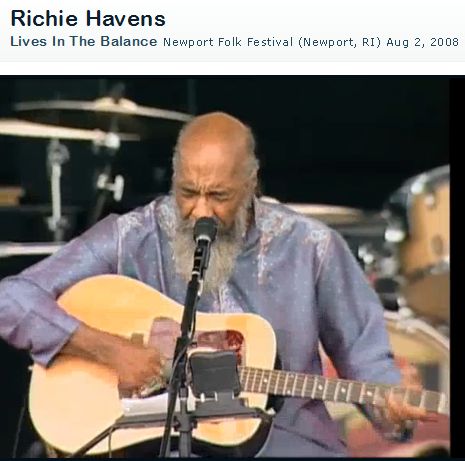
via Wolfgang's Vault
And before we get into our discussion, let’s play that track.
That was “No Banker Left Behind.” And as I understand it, Ry, there’s a bit of an origin story behind this track. Can you tell us about it?
Ry Cooder: Yeah, sure. We at the house, we read Truthdig pretty regularly. And I like to get up in the morning and find it there on the computer and open it up and see what’s what. And I saw this heading—this was during the bank ... the whole business with the bailout. And, “No Banker Left Behind”—I said, that’s the voice of Uncle Dave Macon speaking to me. Uncle Dave, who was the very … at one time very well-known medicine show country musician—you’d have called him a banjo player—just the greatest, par excellence. And he had a great gift for making simple statements about life and about society. And this was also during the Depression; he was very popular at that time, made hundreds of records. And so he would take a thing like this and reduce it down to one little statement, and you heard this and you understood it completely, and by the end of the song you’d learned something. He was very entertaining; he’d dance while he played the banjo, and lived to be a very old man. So I thought, “No Banker Left Behind,” by Uncle Dave Macon … who … no banker left behind, what? The train. OK, they’re on the train, the train’s leaving. Why? Because it’s a rich train for only bankers. They’ve got all the money, they get on the train, the train pulls out, and the rest of us all stand there watching and saying, where’d it all go? You know, how did they make off with all this loot? And then it was a matter of telling a little story of going to the White House, what they’re going to eat when they get on the train, and with Uncle Dave in mind. So it was a pretty simple little thing to do, to get the record started. ...
Eine schöne Geschichte: Ein großer Musiker inspired by the current economy and the protest songs of the past...
 Ry Cooder on the protest songs of today
Ry Cooder on the protest songs of todayMarketplace, Monday, August 29, 2011
Kai Ryssdal: Guitarist Ry Cooder has collaborated with everybody from the Rolling Stones to Randy Newman and Neil Young. It's his solo work, though, that has mostly defined his career. Albums like "Into the Purple Valley" from a long time ago and later "Chavez Ravine" were political as much as musical statements. What he thought about what was happening around us.
He's now turned his attention to our current, not so great, economic situation and how we got here. His new album, which is streaming here, is called "Pull Up Some Dust and Sit Down." ...
I was reading some things, obviously, before we sat down, and there's a great quote from you, and it basically says, 'These times, they call for a different kind of protest song. We're way past 'Where Have All The Flowers Gone.''
Cooder: Yeah, my mother used to sing that and I think it comforted her in those days. I never liked that tune particularly; I thought it was weak. But she was the kind of person who needed a milder kind of message. These days and times we are in now, I just thought when I was working on this record, I thought I'm going to hit these stories as vividly as I can and try to get the point across in four minutes. But you can't just say, you know, 'chin up, chest up, chain and command' anymore. You know what I mean? ...
Zugabe: Richie Havens
Auch ein ganz Großer des amerikanischen politischen Liedes:

via Wolfgang's Vault
gebattmer - 2011/08/30 21:46

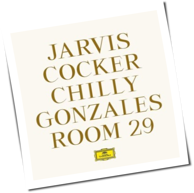







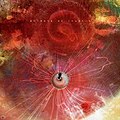













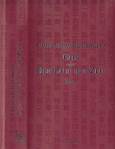
















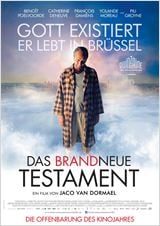











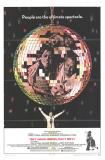






Trackback URL:
https://gebattmer.twoday.net/stories/38759799/modTrackback